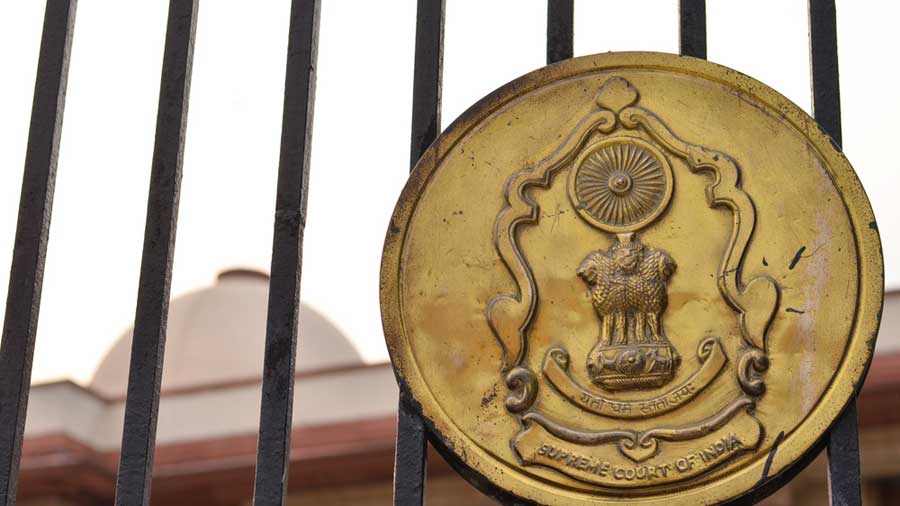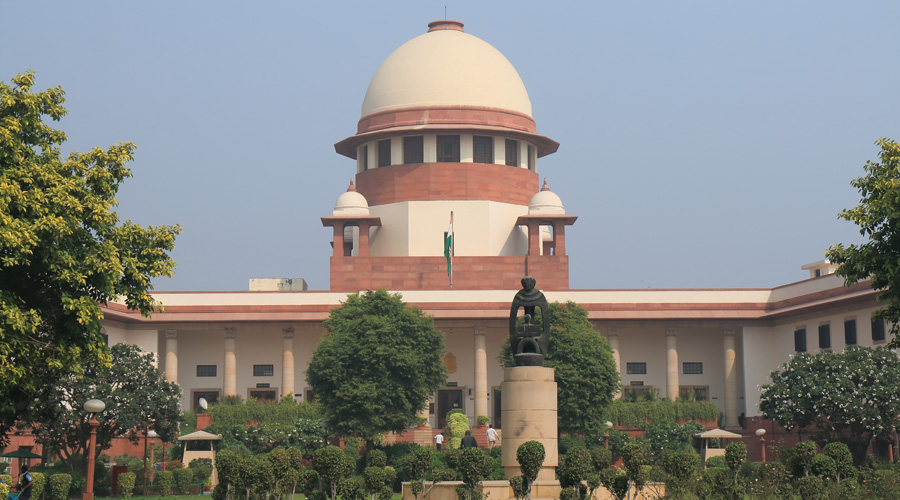The Supreme Court Bar Association has recommended 48 apex court advocates for appointment as high court judges, a plea likely to be resented by the associations of high court advocates.
Under current law and practice, only advocates with 10 years’ experience of practising in the high courts are considered for appointment as high court judges.
But Chief Justice of India N.V. Ramana had in June agreed to explore a request from the Supreme Court Bar Association (SCBA) to elevate Supreme Court lawyers as high court judges, without giving any assurances.
This had triggered a letter to him from the All India Lawyers Union (AILU), a representative body of lawyers from across the country, urging him to reject the plea.
Recently, the SCBA formed a “search committee” that considered 70-odd candidates, picked 48 of them and forwarded the names to Justice Ramana so they can be placed before the five-judge apex court collegium he heads.
The move comes at a time the country’s 25 high courts are groaning under a backlog of 57 lakh cases while facing 40 to 50 per cent judges’ vacancies.
However, if the apex court collegium endorses any of the SCBA candidates, it would amount to bypassing the high court collegiums that make the initial recommendation in the appointment of high court judges.
Besides, high court lawyers are opposed to their Supreme Court counterparts being “para-dropped” into the high courts, thus depriving local lawyers of the opportunity to be elevated.
A recommendation in 2019 by the Orissa High Court collegium to elevate (now Justice) Sanjeeb Panigrahi to the high court had triggered months of intermittent boycott of the high court and the state’s lower courts by lawyers on a call from the Orissa High Court Bar Association.
This despite the candidate being a native of Orissa and having practised in Orissa High Court, although he also practised in the Supreme Court and in other high courts including the one in Delhi.
The reason cited by the Bar association was that the candidate did not practise regularly in Orissa High Court but mostly in the Supreme Court.
An intervention by some well-meaning lawyers led to the protests being withdrawn and Justice Panigrahi was eventually appointed a judge in February last year.
Supreme Court advocates are often appointed directly as apex court judges but the SCBA feels that the best and most experienced of them should also be eligible for elevation as high court judges.
While urging Justice Ramana to consider Supreme Court advocates for elevation as high court judges a few months earlier, SCBA president Vikas Singh had said: “In spite of having vast experience and exposure in dealing with all kinds of issues relating to civil, criminal, constitutional, commercial law, etc, the lawyers practising in the Supreme Court are rarely considered for elevation by the high court collegiums as they do not regularly practise before the high court.”
He had added that apex court advocates were “professionally more meritorious than their colleagues at the high court”.
Singh was part of the “search committee” along with SCBA vice-president Mahalakshmi Pavani and eminent senior advocates Rakesh Dwivedi, Shekhar Naphade, Vijay Hansaria and V. Giri.
Justice Ramana had at a recent conference of chief justices of high courts referred to the SCBA plea but given no final assurances.
The AILU, however, wrote to Justice Ramana saying: “We are afraid that such (a) move, if true, would cause far-reaching negative consequences impacting independence of judiciary and its transparency, and would lead to substitution of the opinion of the high court collegium by that of the Supreme Court collegium.”
It added that acceptance of the SCBA plea would violate “Article 217 of the Constitution and constitution benches’ decisions” that had upheld the present collegium system.
“It militates against the federal principles, the autonomy of the high courts and the constitutional norms,” said the letter from AILU president Bikash Ranjan Bhattacharyya, a senior advocate and CPM Rajya Sabha member, and general secretary P.V. Surendranath.
Under Article 217, a person can be appointed a high court judge only if they have been a judge in the lower courts for at least 10 years or a lawyer in one or more high courts for at least 10 years.












